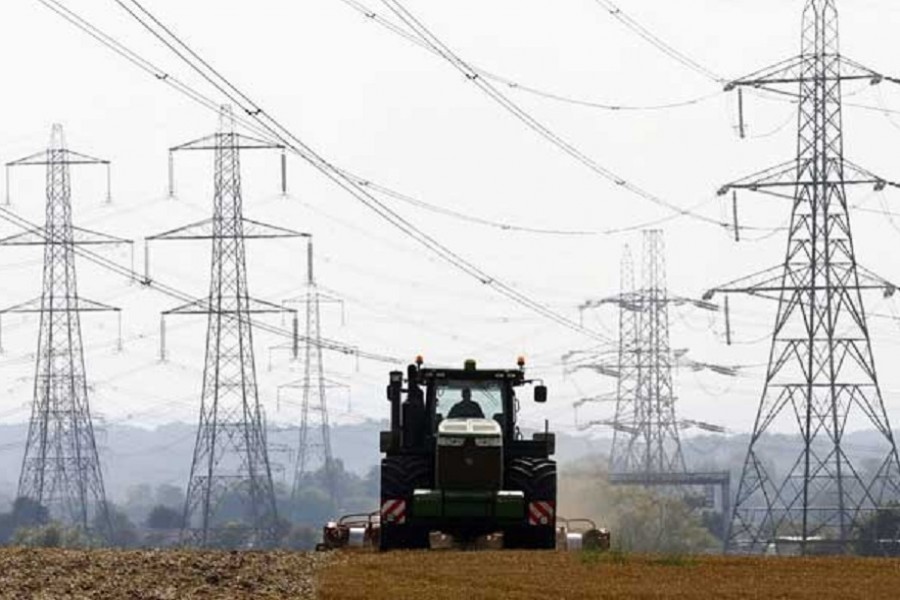
Published :
Updated :

The proportion of British households struggling with energy bills will triple in April when regulated prices look set to rise by more than 50 per cent, the Resolution Foundation said on Monday.
Britain's government will need to spend more than 7.0 billion pounds ($9.6 billion) this year if it wants to offset the effect of soaring energy prices for households, the think tank said.
Prime Minister Boris Johnson's government is under growing pressure from the rising cost of living. The Bank of England predicts annual consumer price inflation will hit a 30-year high of around 6.0 per cent in April.
"Rising gas prices are causing energy bills to soar, and will see the number of families suffering from 'fuel stress' to treble to more than six million households this summer," Resolution Foundation economist Jonny Marshall said.
The proportion of households spending more than 10 per cent of their income on electricity and heating bills - a threshold used to define 'fuel poverty' in Scotland, Wales and Northern Ireland - will triple to 27 per cent from April, the think tank estimated.
Many smaller utility companies have collapsed as wholesale energy prices have risen faster than the maximum tariffs they are allowed to charge, which are updated twice a year, reports Reuters.
The average household energy bill is likely to rise to 2,000 pounds a year in April, the Resolution Foundation said.
Offsetting the impact of this for the poorest households would cost 2.5 billion pounds, through a 300-pound increase to an annual grant and expanding it to the poorest 8.5 million households. This measure would reduce the number of households in 'fuel stress' by 1.0 million, the think tank said.
A further measure - deferring the cost of utility company failures charged to household bills and using general taxation rather than energy bills to fund climate change mitigation - would cost a further 4.8 billion pounds and reduce the number of households in 'fuel stress' by an extra 1.7 million.


 For all latest news, follow The Financial Express Google News channel.
For all latest news, follow The Financial Express Google News channel.